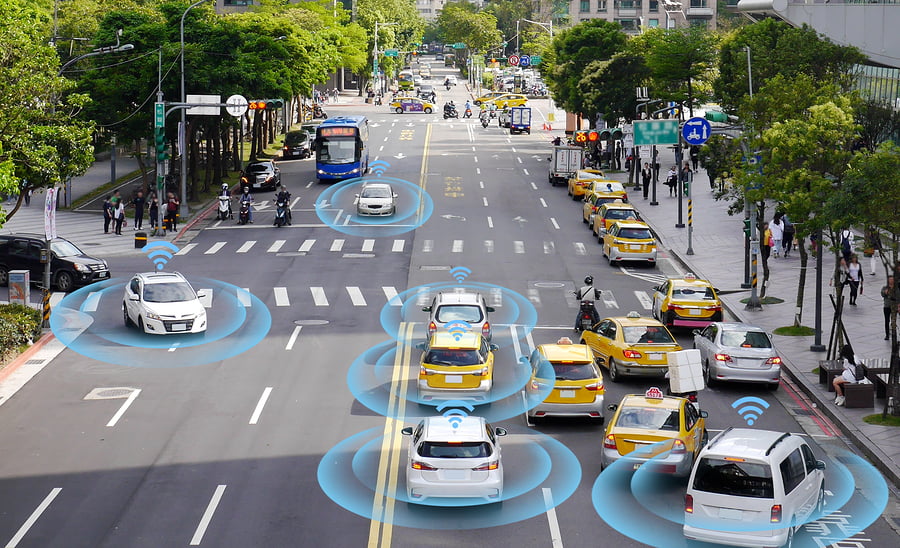Self-driving cars represent the new frontier of technology, and as such, their legality and safety have been hotly debated.
In theory, autonomous vehicles offer enhanced safety and unmatched convenience during travel, but the verdict is still out in practice. There is, in fact, already some controversy surrounding self-driving cars.
During an early rollout of an autonomous Uber vehicle, a woman was struck and killed by the company’s self-driving car while crossing the street. Uber quickly pulled out of testing in Tempe, where the incident occurred, and Pittsburgh, where several companies test these vehicles due to the notorious difficulty in navigating city streets.
Even though events like this one have slowed the adoption of self-driving vehicles, it’s almost certainly too late to stop the wave of self-driving vehicles. Uber, Tesla, Google, Waymo and countless others are testing out their new lines of driverless vehicles in cities across the country.
The Tempe case brings to light a major issue concerning these cars. Since they don’t have drivers, who is at fault when something like this happens? Liability for injuries or damage caused by driverless vehicles is largely uncharted territory.
At the Brown Law Firm, we feel responsible for making sure current and future clients in SC are prepared to navigate risks relating to a new era of technology. In this post, we’ll discuss the complicated issues surrounding who, exactly, is at fault when injuries are caused by self-driving vehicles.
What Is a Self-Driving Car?
Self-driving cars use a sophisticated network of technology that creates a digital image of the roads and surroundings, not unlike radar. Many vehicles these days have features like park assist or awareness of lane integrity. Basically, the computers that control autonomous vehicles are the same, only on a larger scale.
This tech is combined with a complex satellite GPS system that tracks the exact location of a vehicle at any time, allowing it to navigate to any destination at a moment’s notice.
Technology aside, a self-driving car is exactly what it sounds like. These vehicles navigate roadways without being driven by a human being. Here are some of the pros and cons offered by parties both for and against driverless technology:
Pros
Self-driving vehicles take human error out of the equation, a factor that the National Safety Council claims was responsible for 90 percent of the approximately 40,000 fatal accidents that occurred on the roads in 2017.
It stands to reason, that at least in theory, more autonomous vehicles on the road will mean a safer place to drive.
Cons
On the other hand, opponents of self-driving vehicles will point to incidents like the fatal collision in Arizona as evidence that they may not be as safe as they seem.
In addition, some have raised concerns about how these cars — which don’t park because parking would cost money for the companies that operate them — would contribute to gridlock in some cities.
Could a Self-Driving Car Hit Someone?
Absolutely. After all, this has already happened in Tempe, and as more and more self-driving cars enter the roadways as every day means of transportation, more and more similar accidents will occur.
The argument about the safety of these vehicles is far from over, and presently, the safety claims made by both sides are almost completely unresolved. Over the next decade or so, it’s highly likely we’ll know more, but one thing that is hurting the inability to come to a conclusion is a patchwork of inconsistent regulation surrounding liability when one of these collisions occurs.
In South Carolina, for example, self-driving cars have been authorized to travel on state roads, but liability issues are still unclear. Here’s a brief discussion about who is at fault in a few different types of accidents involving autonomous vehicle technology:
A Self-Driving Car Gets in a Collision: Now What?
The legal system is still very inexperienced when it comes to worker’s compensation and personal injury cases involving self-driving vehicles, making it very difficult to decide who is at fault in the most common scenarios.
Here are a few of the leading candidates:
The Automaker
The company that makes, owns, or operates the vehicle can be liable in certain cases. For example, the family of a Chinese man who suffered a fatal accident in a Tesla is suing the carmaker over a possible defect in one of the vehicle’s autonomous driving functions.
Depending on the circumstances of the collision, the automaker could be held responsible. In the Arizona case, Uber was the operator of the vehicle involved, so even though the company doesn’t manufacture cars, it could be held liable.
The Passenger
While self-driving cars are supposed to take human error out of the equation, some vehicles will continue to be equipped with passenger override features. If the passenger takes control when they shouldn’t, or fails to take control when they should and causes a collision, they can be held responsible for any damages in court.
The Other Party
In the case where the pedestrian was fatally struck in Arizona, she was crossing the street outside of a designated crosswalk or another pedestrian-safe area. If that case was brought to civil litigation, it’s possible that the victim could be deemed liable for her own accident, and not the owner or operator of the vehicle at all.
This is a common outcome, say, if another car was driving erratically and was struck by a self-driving vehicle.
Nobody
There are some cases in which no one would be liable, just like accidents involving two vehicles operated by human drivers. Most commonly, the case would involve something like slick roads as a result of weather. There are acceptable limitations to vehicles’ brakes, and courts generally wouldn’t assign liability in a case where two vehicles were victims of road conditions.
The Legal Implications of Self-Driving Cars
Because there’s essentially no legal precedent in SC regarding self-driving cars, the possibilities are nearly endless as the technology is adopted more widely. No matter what happens with the laws regarding self-driving cars in the future, it’s important that your best interests are represented should you be involved in accident involving these new obstacles. It’s crucial to have an experienced car accident lawyer to help you navigate the changing landscape.
In the early days, we feel confident that accidents involving driverless operation will be treated by the justice system similar to the way accidents involving humans operators are in personal injuries cases in SC.
If you or someone close to you is hurt in an accident, there’s no time to waste. Call the Brown Law Firm and get the guidance you need to receive the compensation you deserve.
Ready To Speak With An Attorney?
Get your case evaluated by a real attorney at no cost to you.

